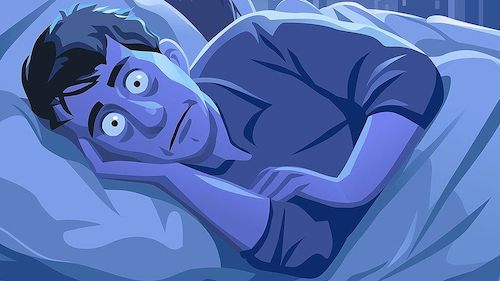We understand that CBD has become a popular choice among people suffering from insomnia. While many studies have suggested the potential benefits of CBD in promoting better sleep, it is important to have a comprehensive understanding of how CBD affects the body and how it can be used effectively.
How CBD Works to Help with Insomnia CBD, or cannabidiol, is a chemical compound found in the cannabis plant. It is known to interact with the body's endocannabinoid system (ECS), which regulates various bodily functions, including sleep. The ECS is composed of receptors that are located throughout the body, including the brain, immune system, and nervous system. CBD works by binding to these receptors and modulating their activity, which can help regulate sleep patterns. Specifically, CBD has been shown to increase the amount of time spent in deep sleep, reduce the number of times a person wakes up during the night, and improve overall sleep quality.
Research on the Benefits of CBD for Insomnia A number of studies have investigated the potential benefits of CBD for insomnia. In one study, researchers found that CBD improved the sleep quality of people with insomnia by reducing the amount of time it took them to fall asleep and increasing the amount of time they spent asleep. Another study found that CBD was effective in reducing anxiety and improving sleep in people with post-traumatic stress disorder (PTSD). Additionally, a study conducted on rats found that CBD increased the total sleep time and improved the quality of sleep. While these studies suggest that CBD may be an effective treatment for insomnia, it is important to note that more research is needed to fully understand the potential benefits and risks of using CBD for this purpose.
How to Use CBD for Insomnia If you are considering using CBD for insomnia, it is important to consult with a healthcare professional first. They can help you determine the appropriate dosage and ensure that CBD is safe for you to use. CBD is available in a variety of forms, including oils, capsules, and topical creams. The most effective form of CBD for insomnia may vary depending on the individual. Some people find that taking CBD oil before bed helps them sleep better, while others prefer using a topical cream. It is important to note that CBD can have side effects, including drowsiness, dry mouth, and changes in appetite.
Additionally, CBD can interact with certain medications, so it is important to discuss any potential interactions with your healthcare provider.
CBD may be an effective treatment for insomnia, but more research is needed to fully understand its potential benefits and risks. If you are considering using CBD for this purpose, it is important to consult with a healthcare professional first and to use it safely and responsibly.







